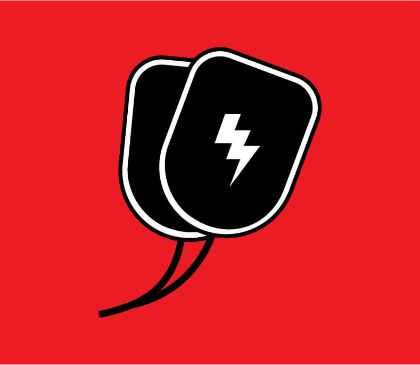What are Universal Precautions?
- Nov 18, 2019

The importance of Universal Precautions and how to protect yourself from bloodborne pathogens.
Universal precaution is an approach to infection control that urges medical providers, first aid providers, and bystanders to treat all human blood and other potentially infectious materials such as cerebrospinal fluid, synovial fluid, pleural fluid, pericardial fluid, peritoneal fluid, semen, vaginal secretions, amniotic fluid, saliva in dental procedures, and any body fluid that is visibly contaminated with blood as if it were known to be infectious for HIV, hepatitis, staph, or other bloodborne pathogens (Occupational Safety and Health Administration).
Individuals who use universal precautions are much less likely to be exposed to bloodborne pathogens
The Centers for Disease Control and Prevention (CDC) estimates that more than 5.6 million workers in the healthcare industry and related occupations are at risk of occupational exposure to bloodborne pathogens. These figures don’t include the tens of millions of people who are first aid certified each year and who play an increasingly important role as first responders to emergency situations.
In case you were curious, not all fluids require special handling: “Universal precautions do not apply to feces, nasal secretions, sputum, sweat, tears, urine, and vomitus unless they contain visible blood. The risk of transmission of HIV and HBV from these fluids and materials is extremely low or nonexistent” (CDC).
The Purpose of Universal Precautions
The purpose of practicing universal precautions is twofold: universal precautions protect patients from further harm or infection, while simultaneously protecting the medical or first aid practitioner from contracting a bloodborne illness from an infected individual.
Universal Precaution Equipment
Although unbroken skin is a good barrier against bloodborne pathogens, even the smallest cut, blister, blemish, or skin opening can admit pathogens. Bloodborne pathogens may also be transmitted through the mucous membranes of the eyes, nose, and mouth. Equip yourself with personal protective equipment such as:
-
Heavy-duty nitrile gloves
-
Face shields
-
Eye protection
-
Surgical gowns
If your office or facility has an AED, First Aid, or Stop the Bleed® kits, you should include standard universal precaution personal protective equipment.
10 Ways Protect Yourself from Bloodborne Pathogens
If you ever find yourself in a situation where you need to perform CPR, give mouth-to-mouth resuscitation, administer first aid, or are otherwise exposed to blood or other potentially infectious materials, you must protect yourself to prevent exposure to pathogens.
-
Treat all blood and body fluid spills as if they were infectious.
-
When providing first aid or CPR, protect yourself first (put on gloves and use a face mask), then treat the victim.
-
Coach injured individuals to apply bandages and to exert pressure on a wound if they’re able to do so.
-
Wear appropriate personal protective equipment: gloves, goggles, face shields, etc…
-
When performing CPR, always use a mask equipped with a one-way valve to prevent contact with potentially infectious body fluids.
-
Contain spills immediately, then clean up and disinfect the area.
-
Handle all trash with caution — as though it contains sharps and/or infectious items.
-
When removing contaminated clothing, carefully turn all items inside out as they’re removed to contain contaminants.
-
Carefully dispose of contaminated items in appropriately labeled containers.
-
After removing personal protective equipment, vigorously wash hands or other affected body parts with soap and warm water. If soap is not available, use hand sanitizer or sanitizing wipes.
-
Cardio Partners is a trusted nationwide CPR, First Aid, AED, and bloodborne pathogen training center. We offer high-quality training courses in all 50 states in both traditional classroom settings and in blended learning courses. To learn more about our courses or to schedule a training, call our team at 800-544-0004 or email Cardio Partners at customerservice@cardiopartners.com.





 CALL US:
CALL US: